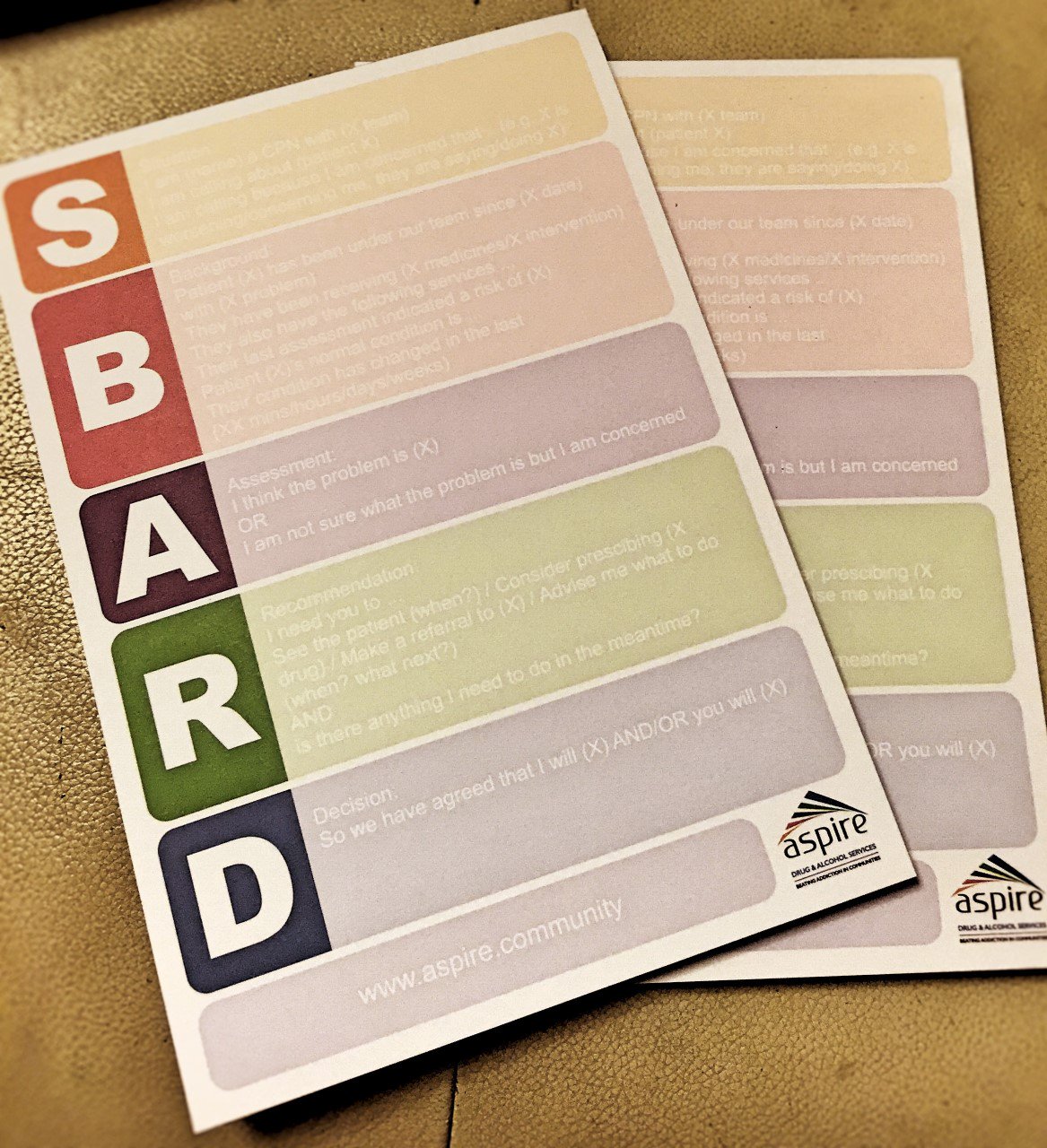Where: Rotherham, Doncaster, and South Humber NHS Foundation Trust (RDASH)
What we did: SBAR communication is widely adopted in many healthcare organisations.
It is an acronym for: - ‘Situation, Background, Assessment, Recommendation’, and is an evidence-based technique to aid health care communication, advocated by the Royal College of Physicians.
Our fabulous service manager, Stuart Green, designed the SBAR communication method (with the addition of D = decision making) to fit on note pads which are placed near phones and carried by staff in the in-patient and community drug and alcohol services (see picture).
The prompts are printed upon the pads in a watermark style enabling them to be written over.
Why is this important for people: The SBAR communication method is widely used within our Trust. It is embedded into our policies and procedures, and specifically recommended if a medical emergency occurs and to be used when handing over patient information.
One major difficulty in an emergency situation is that staff caring for patients can sometimes find it hard to remember or fully follow the SBAR process if it is only on a policy or on a poster.
SBAR is a communication process is also used across the acute Trusts that RDASH liaise with, and in many GP centres.
In a crisis situation, if RDASH callers obtain information about the patients using this process, and convey problems in this logical manner, medical advice can be obtained quicker and care can be prioritised. This is essential if a person is in a potentially life threatening physical health crisis.
The creation of the notepads with the watermark of the SBAR process on them means that staff always have them to hand, it helps ensure they do not have to rely on memory at times of crisis and it reduces risk for patients. The note pad sheets can be scanned into the RDASH clinical records system, with the hard copy sent with the patient in the ambulance if required.
What difference we have made: In making this small change, huge benefits have been realised for staff and patients. The note pads are placed near all phones, available in handovers and also multi-professional team meetings. This means that they can act as prompts for professionals in stressful situations, which reduces risk and also reduces delays in patient care.
In emergency situations (i.e. contacting an ambulance service), it ensures that the staff calling can have all available information required at their fingertips, in a format that different organisations use – a common language.
Having all necessary health information can reduce delays and help ambulance and emergency care service prioritise responses, which reduces risks to patients.
Where next: these note pads have been introduced by the service manager in the Aspire drug and alcohol service, however news has spread, and there are plans to consult all of our in-patient and community physical health and mental health teams, and have them in place for our Doctors, Nursing staff and allied health professionals who are keen to use them.
If you want more information, or a copy of the print template, please email us at RDASH: [email protected]

